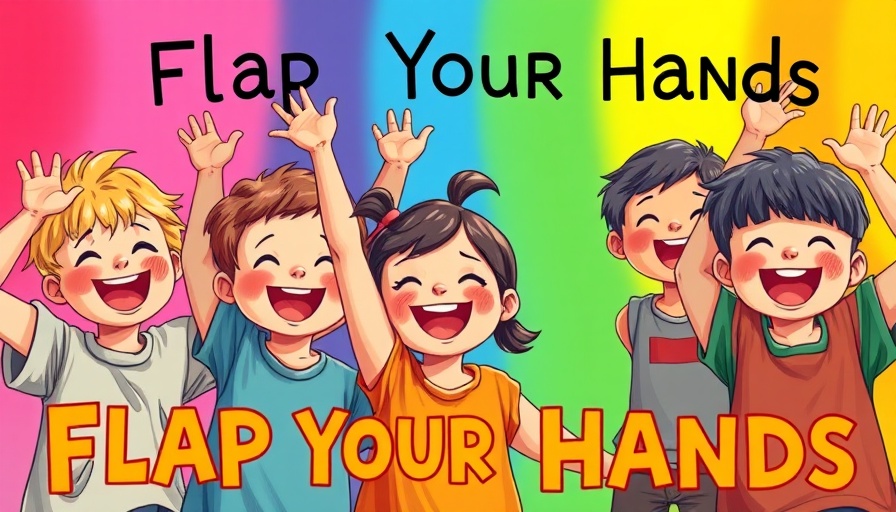
Embracing Neurodiversity: Why Authentic Representation Matters
Understanding autism is not merely an academic exercise; it’s a deeply personal journey for many individuals. As an autistic author, I can attest to the importance of seeing authentic representations of autism in literature. Books featuring autistic protagonists can provide validation and inspiration, offering hope and connection to those who identify with these characters. It was a book that first nudged me toward recognizing my own identity, even if it had its problematic elements. We need more stories that reflect the complexity and richness of the autistic experience.
Celebrating Autistic Voices: A Guide to Kidlit
In a world where neurodivergence often goes unrecognized, the emergence of literary works that embrace autistic narratives marks a significant cultural shift. It is crucial that education leaders and teachers are equipped with the right resources to facilitate these discussions in classrooms. Below, I highlight a selection of kidlit that effectively champions autistic characters and their experiences, serving as essential tools for education and understanding.
Picture Books and Early Chapter Books
Flap Your Hands: A Celebration of Stimming by Steve Asbell is a delightful tale that normalizes stimming, helping readers realize that it can be a source of joy. Its hopeful ending encourages self-soothing practices, reminding readers that sensory experiences don’t have to be overwhelming.
Bitsy Bat, School Star by Kaz Windness uses the metaphor of an “upside-down” bat to highlight the struggles and joys of neurodivergence. Bitsy's journey in a world that often misunderstands her encourages acceptance and empowers young readers to celebrate their uniqueness.
The Infinity Rainbow Club Series by Jen Malia introduces us to Nick, an autistic boy discovering teamwork in the context of a neurodivergent-friendly environment. This series provides a nuanced depiction of neurodivergent life, emphasizing the importance of understanding and compassion among peers.
Middle-Grade Highlights
The Fire, The Water, and Maudie McGinn by Sally J. Pla offers a compelling look at how Maudie's neurodivergent identity interacts with her past experiences of abuse and trauma. It’s an engaging story that encourages readers to find confidence in their identities while tackling complex themes of self-acceptance.
The Role of Educators in Promoting Neurodiversity
For teachers and education leaders, the choice of literature is pivotal. Books that portray neurodiversity authentically can break down stereotypes and foster a more inclusive learning environment. Utilizing titles such as those mentioned can spark valuable discussions in classrooms, empowering young readers to empathize with and understand their peers' diverse experiences.
Future Trends: Expanding Neurodiverse Literature
As demand grows for authentic representation, the publishing industry is slowly but surely responding. The rise of autistic authors provides a crucial perspective missing from broader literature. Moving forward, it’s essential to support these voices and ensure that more stories are told, creating a diverse library that truly reflects the world we live in.
Common Misconceptions About Autism Representation
One common misconception about autistic literature is that it should only feature challenges and deficits. However, many stories can also celebrate ADHD and neurodiversity’s positive aspects. Including diverse narratives enriches our understanding of autism, showing readers that there is no singular experience.
These titles foster an environment where children of all backgrounds, including neurodivergent kids, feel seen and valued. They not only encourage acceptance but also a deeper understanding of what it means to be different.
Your Role As a Reader and Educator
For those of you who are teachers, caregivers, or simply book enthusiasts, exploring these stories is a wonderful step. Seeking out literature that celebrates neurodivergence enriches personal understanding and enhances the community's overall acceptance. Let’s celebrate these stories and advocate for more! The world needs diverse voices, and literature is a powerful vehicle for transformational change.
As you engage with these narratives, you will find that not only do they inform, but they also inspire. Remember to share these reads with others, spreading awareness about the necessity of authentic autism representation.
Let's champion these stories that deserve to be heard for the benefit of all readers, young and old.
 Add Row
Add Row  Add
Add 




 Add Row
Add Row  Add
Add 

Write A Comment